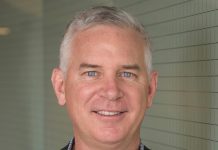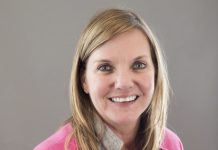In 2006, Steve Ardagh founded Eagle Protect, which he also runs as CEO. The company is based in Christchurch, New Zealand and California, USA. Globally, they supply single-use consumable items to the food and medical sector. Their products include latex and nitrile gloves, disposable non-woven clothing and PE protective wear.
Steve Ardagh has seen Eagle Protect rise to a company that supplies “approximately 80% of the primary food processing industry in New Zealand with responsibly sourced disposable gloves and protective clothing.” The company also takes pride in protecting their clients’ reputation, by “ensuring the products we sell are ethically sourced and carefully manufactured in factories we personally visit and inspect.”
In January 2016, Steve Ardagh relocated to the United States, hoping to bring the philosophy of Eagle Protect to the disposable clothing needs of the country’s food processing and service sectors.
Steve Ardagh began Eagle Protect on the principles of “honesty and integrity.” Since its founding, they have only sourced products from like-minded manufacturers. They have also visited several glove manufacturing factories “with poor hygiene and labor conditions.” As a result, they wanted to work only with factories who “look after their workers, contribute to their communities, and reduce their environmental impact.”
Since 2012, Eagle Protect has been a certified B Corporation, with Steve Ardagh being an active member of the community. The company is also the “world’s only disposable glove and clothing specialist” to enjoy a B Corp certification.
Check out more interviews with ethical entrepreneurs here.
We are a purpose-driven company, and we are literally trying to save the world one glove at a time. Steve Ardagh, Eagle Protect
Jerome Knyszewski: What do you think makes your company stand out? Can you share a story?
Steve Ardagh: I believe our key point of difference is that we are a purpose-driven company as ratified by our Certified B Corporation status. To become certified your company must undergo a rigorous process to verify your commitment to social and environmental performance, public transparency and legal accountability to balance profit and purpose. Eagle Protect’s goal is to save the world’s food industry one glove at a time and to help our customers use a lot less of a better product. We are mindful of the supply chain from beginning to end, and we look after our staff, our community and our suppliers. To reduce waste, we help customers reduce usage by supplying a better product. People assume failure is part of the glove story, and it shouldn’t be.
Jerome Knyszewski: Which tips would you recommend to your colleagues in your industry to help them to thrive and not “burn out”?
Steve Ardagh: We are a purpose-driven company, and we are literally trying to save the world one glove at a time. That doesn’t burn you out, it fires you up. We also make sure we have fun. We share the love as much as possible with our employees, and we make sure everyone shares in the rewards of a good year. We also encourage creative thinking and fun when it comes to our customers. We come up with creative ways to make our product something more than a box of gloves. We’ve printed quotes on them or used unique designs and colors. There was one instance where we designed our outer box to be assembled into a mobile. It had a globe, a plane and the moon you could cut out yourself and assemble. I recall I visited one of our customers, a meatpacking plant, and one of the men there had assembled our mobile and hung it over his desk. It was just a fun thing to make someone’s day more interesting.
Jerome Knyszewski: None of us are able to achieve success without some help along the way. Is there a particular person who you are grateful towards who helped get you to where you are? Can you share a story?
Steve Ardagh: My dad was a surgeon and he volunteered to go to the Vietnam War to help set up hospitals with the New Zealand Army Medical Corps. I learned from him hard work and dedication and service to a cause. If you aren’t into it, get out of it, was a lesson he taught me. As I have grown older, I appreciate more that life is too short to bark up the wrong tree. Don’t waste your time. I love building a successful company and seeing the company get better, the team excited and having a true impact on the world.
We always challenge ourselves to find what ways in which we can be the best in the world.
Jerome Knyszewski: Ok thank you for all that. Now let’s shift to the main focus of this interview. The title of this series is “How to take your company from good to great”. Let’s start with defining our terms. How would you define a “good” company, what does that look like? How would you define a “great” company, what does that look like?
Steve Ardagh: One of my favorite books is Jim Collins’ Good to Great: Why Some Companies Make the Leap… and Others Don’t, and especially his quote, “Good is the enemy of great.” Good is often good enough for many people and they don’t go to the next step. One of Eagle Protect’s core values is intolerance of mediocrity. We always challenge ourselves to find what ways in which we can be the best in the world. I visit every factory we source from, we know the owners and we have a good relationship.
Jerome Knyszewski: What would you advise to a business leader who initially went through years of successive growth, but has now reached a standstill. From your experience do you have any general advice about how to boost growth and “restart their engines”?
Steve Ardagh: In New Zealand, there is a saying that you’ve made it in business when you get to the Three Bs — a boat, a BMW and a bach (pronounced like “batch,” which is a vacation home). Once the owner can get a business to that stage, he or she can go off to the bach and the business carries on without exciting growth. When we got to that stage, we recognized we weren’t able to get much bigger in New Zealand, but we still wanted to grow. So, we came to the United States. When you look for new opportunities, you generally need to bring in new people with new ideas and experience into the business. That helped us reinvigorate and grow. Americans think they can change the world and they often do. This is one of the only places in the world where you can make a huge difference with a good idea.
Jerome Knyszewski: Generating new business, increasing your profits, or at least maintaining your financial stability can be challenging during good times, even more so during turbulent times. Can you share some of the strategies you use to keep forging ahead and not lose growth traction during a difficult economy?
Steve Ardagh: With the explosive demand for PPE during the pandemic, one of the challenges we face at the moment is that we have everyone coming to us looking for products, but we have made a commitment to keep all our customers in business because they have often been let down by other suppliers. We haven’t let down a single customer since we started. Recently, I was offered a huge sum of money for gloves that were meant for one of our customers. But I wasn’t tempted to take that money, even though it probably could have set me up to sail around Lake Tahoe all summer rather than run the business here. We always do right by our customers, and I believe that is why we haven’t lost a significant contract since we relocated to California in 2016.
It is important to make sure they are continuing to be engaged and involving them in the decisions. Steve Ardagh
Jerome Knyszewski: In your experience, which aspect of running a company tends to be most underestimated? Can you explain or give an example?
Steve Ardagh: The key thing that is easy to let slip, especially when you are busy (as we’ve been in the pandemic), is keeping a pulse on your culture and looking after your staff. It is important to make sure they are continuing to be engaged and involving them in the decisions. At Eagle Protect, we are completely transparent and every employee has visibility to all our numbers (with the exception of salaries). They know exactly where the business stands at all times and they have a say in how it is run.
Jerome Knyszewski: Great customer service and great customer experience are essential to build a beloved brand and essential to be successful in general. In your experience what are a few of the most important things a business leader should know in order to create a Wow! Customer Experience?
Steve Ardagh: It’s a simple circle. Don’t just be good, be great. Look after your staff, and they look after the customer, and the customer looks after you. Don’t overcomplicate it.
Jerome Knyszewski: What are your thoughts about how a company should be engaged on Social Media? For example, the advisory firm EisnerAmper conducted 6 yearly surveys of United States corporate boards, and directors reported that one of their most pressing concerns was reputational risk as a result of social media. Do you share this concern? We’d love to hear your thoughts about this.
Steve Ardagh: I don’t believe that as a company we have a reputational risk from social media, especially because we are very committed to doing right for our customers. However, there is a risk for our industry on social media that I am seeing. Fraudulent companies are using social media, especially LinkedIn, to try and pass off poor quality, and even previously-used products, as new and quality. If anything, that just puts a stain on the industry as a whole.
One of the biggest ones is thinking that you have to know everything. Sometimes, you just have to forge ahead without having all the answers — just work through it until you do have them.
Jerome Knyszewski: What are the most common mistakes you have seen CEOs & founders make when they start a business? What can be done to avoid those errors?
Steve Ardagh: One of the biggest ones is thinking that you have to know everything. Sometimes, you just have to forge ahead without having all the answers — just work through it until you do have them. If you wait, the opportunity may pass you by. I also learned that whatever you think starting your business will cost in the first year, double it at least. And cut your expected income in half.
Jerome Knyszewski: Thank you for all of that. We are nearly done. You are a person of great influence. If you could start a movement that would bring the most amount of good to the most amount of people, what would that be? You never know what your idea can trigger. 🙂
Steve Ardagh: To me, this is very simple and obvious: good business is good for communities and countries. How do we promote and incentivize good businesses? The Certified B Corporation is one great example of companies who have a shared approach to people, planet and profit.
Jerome Knyszewski: How can our readers further follow you online?
Steve Ardagh: Check out Eagle Protect on these channels:
Jerome Knyszewski: This was very inspiring. Thank you so much for the time you spent with this!





